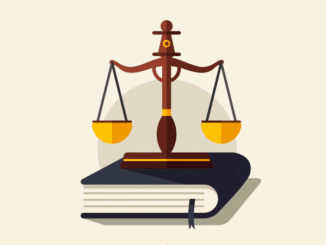
The last few weeks, a new ruling by the Federal Court has been the talk of the town. The highest court ruled that an unpunished amount of cannabis (<10g and exclusively for personal consumption) cannot be seized by the police. This is another step towards the decriminalization of cannabis. In principle, less criminalization of consumers is to be welcomed. At the same time, the discussion about this ruling also shows why legalizing cannabis would be better for all sides and much less chaotic.
The regulatory jungle of partial decriminalization
Possession of a small amount of cannabis for personal consumption (<10g) and preparatory acts for consumption have been exempt from punishment in Switzerland for quite some time. For a long time, however, this legal situation was ignored by the police and the public prosecutor’s office, and fines were blithely handed out. The argumentation of the authorities was usually that it was still an illegal substance. Further, it was clear that sooner or later there would be consumption (or suspicion of past consumption), which in turn would be illegal. It was not until a 2017 ruling by the Federal Supreme Court that this practice was put a stop to. Since then definitely applies (more or less consistently implemented): Small amount & preparatory acts are exempt from punishment, the consumption itself is illegal.
However, the Federal Supreme Court left one important question open in its 2017 ruling: What happens to the unpunished quantity after a police check? Previously, the cannabis was usually confiscated. Admittedly, the question of what to do with a non-punishable quantity of an illegal substance is not without its challenges. It is therefore very welcome that it has now also been stated clearly here that an unpunished quantity is unpunished and therefore may not be seized.
However, anyone who thought that the discussion about law enforcement powers was over for the time being is unfortunately wrong again. Only a short time after the ruling, it was noted with astonishment in many places that the ruling of the Federal Court can be applied not only to cannabis but also to “hard” drugs. However, the SSK (Swiss Conference of Prosecutors) disagreed with this assessment. In order to prevent a cantonal chaos with different handling, they have urged all authorities to stick to the previous practice for hard drugs, while for cannabis it is clear that the ruling must be followed. Furthermore, the SSK called on politicians to regulate this ambiguity by law.
It could also be simpler…
As good as it is for consumers to be less criminalized – the solution is not a clean one. Not surprising really: wanting something to be illegal and unpunished at the same time probably inevitably leads to problems. If cannabis were finally legalized, the way would be clear for sensible and adapted regulation of the market. Instead of an eternal cat and mouse game between police & dealers, resources could be put into effectively fighting the big players in the black market and into meaningful prevention work. To get ideas of what that would look like, we don’t even have to look that far. On the one hand, we have already gained a lot of experience with alcohol and tobacco on how to regulate individual substances in a targeted manner. Furthermore, there are – both from Switzerland and from countries with legalization experience – various clear findings that speak in favor of legalization. Until we’re finally ready, we’ll just have to settle for CBD products when in doubt….




